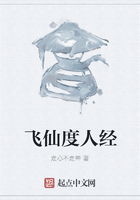Now the youngest son was sitting in the kitchen, as was his custom, when he heard his father say those words. And he rose up, and went to his father, and knelt before him. 'Father, this year you shall eat dates,' cried he. 'And on the tree are five great bunches, and each bunch I will give to a separate nation, for the nations in the town are five. This time, I will watch the date tree myself.' But his father and his mother laughed heartily, and thought his words idle talk.
One day, news was brought to the sultan that the dates were ripe, and he ordered one of his men to go and watch the tree. His son, who happened to be standing by, heard the order, and he said:
'How is it that you have bidden a man to watch the tree, when I, your son, am left?'
And his father answered, 'Ah, six were of no use, and where they failed, will you succeed?'
But the boy replied: 'Have patience to-day, and let me go, and to-morrow you shall see whether I bring you dates or not.'
'Let the child go, Master,' said his wife; 'perhaps we shall eat the dates--or perhaps we shall not--but let him go.'
And the sultan answered: 'I do not refuse to let him go, but my heart distrusts him. His brothers all promised fair, and what did they do?'
But the boy entreated, saying, 'Father, if you and I and mother be alive to-morrow, you shall eat the dates.'
'Go then,' said his father.
When the boy reached the garden, he told the slaves to leave him, and to return home themselves and sleep. When he was alone, he laid himself down and slept fast till one o'clock, when he arose, and sat opposite the date tree. Then he took some Indian corn out of one fold of his dress, and some sandy grit out of another.
And he chewed the corn till he felt he was growing sleepy, and then he put some grit into his mouth, and that kept him awake till the bird came.
It looked about at first without seeing him, and whispering to itself, 'There is no one here,' fluttered lightly on to the tree and stretched out his beak for the dates. Then the boy stole softly up, and caught it by the wing.
The bird turned and flew quickly away, but the boy never let go, not even when they soared high into the air.
'Son of Adam,' the bird said when the tops of the mountains looked small below them, 'if you fall, you will be dead long before you reach the ground, so go your way, and let me go mine.'
But the boy answered, 'Wherever you go, I will go with you. You cannot get rid of me.'
'I did not eat your dates,' persisted the bird, 'and the day is dawning. Leave me to go my way.'
But again the boy answered him: 'My six brothers are hateful to my father because you came and stole the dates, and to-day my father shall see you, and my brothers shall see you, and all the people of the town, great and small, shall see you. And my father's heart will rejoice.'
'Well, if you will not leave me, I will throw you off,' said the bird.
So it flew up higher still--so high that the earth shone like one of the other stars.
'How much of you will be left if you fall from here?' asked the bird.
'If I die, I die,' said the boy, 'but I will not leave you.'
And the bird saw it was no use talking, and went down to the earth again.
'Here you are at home, so let me go my way,' it begged once more;'or at least make a covenant with me.'
'What covenant?' said the boy.
'Save me from the sun,' replied the bird, 'and I will save you from rain.'
'How can you do that, and how can I tell if I can trust you?'
'Pull a feather from my tail, and put it in the fire, and if you want me I will come to you, wherever I am.'
And the boy answered, 'Well, I agree; go your way.'
'Farewell, my friend. When you call me, if it is from the depths of the sea, I will come.'
The lad watched the bird out of sight; then he went straight to the date tree. And when he saw the dates his heart was glad, and his body felt stronger and his eyes brighter than before. And he laughed out loud with joy, and said to himself, 'This is MY luck, mine, Sit-in-the-kitchen! Farewell, date tree, I am going to lie down. What ate you will eat you no more.'
The sun was high in the sky before the head-man, whose business it was, came to look at the date tree, expecting to find it stripped of all its fruit, but when he saw the dates so thick that they almost hid the leaves he ran back to his house, and beat a big drum till everybody came running, and even the little children wanted to know what had happened.
'What is it? What is it, head-man?' cried they.
'Ah, it is not a son that the master has, but a lion! This day Sit-in-the-kitchen has uncovered his face before his father!'
'But how, head-man?'
'To day the people may eat the dates.'
'Is it true, head-man?'
'Oh yes, it is true, but let him sleep till each man has brought forth a present. He who has fowls, let him take fowls; he who has a goat, let him take a goat; he who has rice, let him take rice.' And the people did as he had said.
Then they took the drum, and went to the tree where the boy lay sleeping.
And they picked him up, and carried him away, with horns and clarionets and drums, with clappings of hands and shrieks of joy, straight to his father's house.
When his father heard the noise and saw the baskets made of green leaves, brimming over with dates, and his son borne high on the necks of slaves, his heart leaped, and he said to himself 'To-day at last I shall eat dates.' And he called his wife to see what her son had done, and ordered his soldiers to take the boy and bring him to his father.
'What news, my son?' said he.
'News? I have no news, except that if you will open your mouth you shall see what dates taste like.' And he plucked a date, and put it into his father's mouth.
'Ah! You are indeed my son,' cried the sultan. 'You do not take after those fools, those good-for-nothings. But, tell me, what did you do with the bird, for it was you, and you only who watched for it?'
'Yes, it was I who watched for it and who saw it. And it will not come again, neither for its life, nor for your life, nor for the lives of your children.'
'Oh, once I had six sons, and now I have only one. It is you, whom I called a fool, who have given me the dates: as for the others, I want none of them.'















